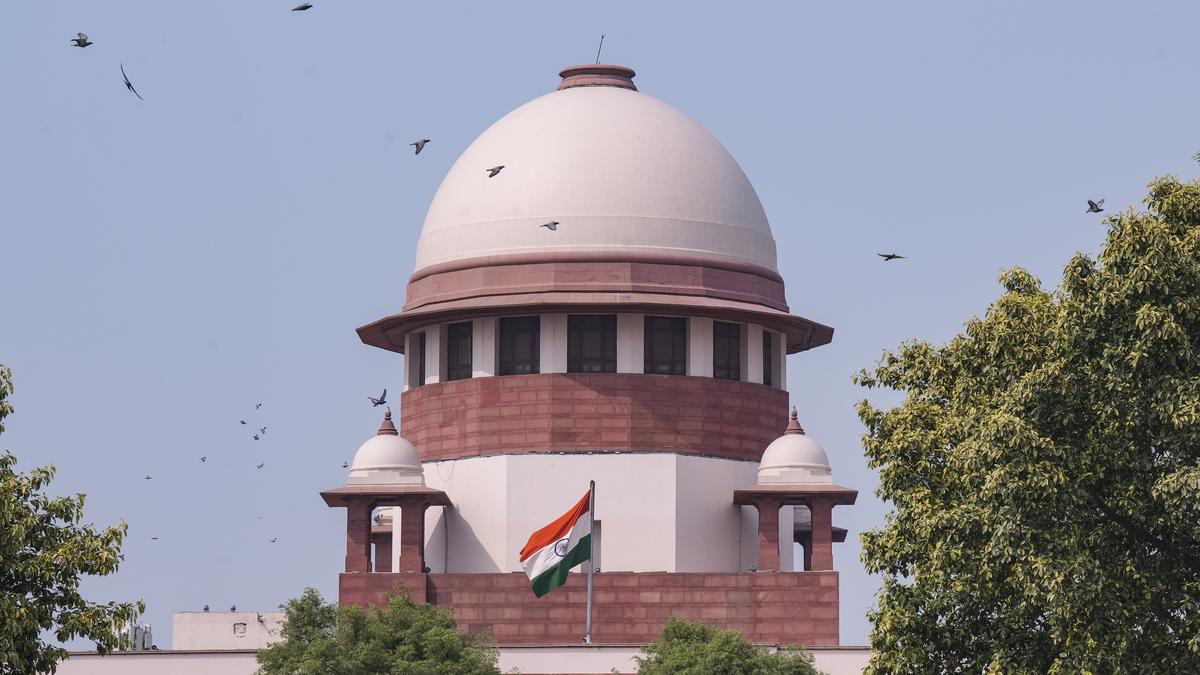
The top court in July 2022 upheld the ED’s powers of arrest and attachment of property involved in money laundering, search and seizure under the PMLA. File
| Photo Credit: PTI
The Supreme Court has reconstituted a three-judge bench to decide if its 2022 verdict upholding the Enforcement Directorate’s powers to arrest and attach property under the Prevention of Money Laundering Act needs reconsideration.
The reconstituted Bench of Justice Surya Kant, Justice Ujjal Bhuyan and Justice N. Kotiswar Singh will take up a batch of petitions seeking a review of the 2022 verdict.
The matter is listed for hearing on May 7.
Earlier, a bench of Justice Kant, Justice Bhuyan and Justice CT Ravikumar was hearing the matter.
Justice Ravikumar superannuated on January 5.
Also Read | Supreme Court ruling paves way for ED to attach assets, conduct raids prior to predicate offence: Ex ED chief
On March 6, after the pleas were listed before a two-judge bench, Justice Kant told the lawyers appearing in the matter that it was wrongly listed and assured them that a new three-judge bench would shortly take up the issue.
The top court in July 2022 upheld the Enforcement Directorate’s (ED) powers of arrest and attachment of property involved in money laundering, search and seizure under the Prevention of Money Laundering Act (PMLA).
In August that year, the top court agreed to hear pleas seeking review of its verdict and observed that two aspects — not providing an Enforcement Case Information Report (ECIR) and reversal of the presumption of innocence — “prima facie” required reconsideration.
Observing it was common the world over that money laundering was a “threat” to the good functioning of a financial system, the apex court upheld the validity of certain provisions of the PMLA, underlining it was not an “ordinary offence”.
Also Read | Supreme Court pulls up ED for using PMLA to keep accused in jail
The top court had said authorities under the 2002 law were “not police officers as such” and the ECIR could not be equated with an FIR under the Code of Criminal Procedure (CrPC).
It had said supply of an ECIR copy in every case to the person concerned was not mandatory and it was enough if the ED, at the time of arrest, disclosed the grounds for it.
The verdict came on a batch of more than 200 petitions filed by individuals and other entities questioning various provisions of the PMLA, a law the opposition often claims is weaponised by the government to harass its political adversaries.
Section 45 of the PMLA, which deals with offences to be cognisable and non-bailable and have twin conditions for bail, is reasonable and does not suffer from the vice of arbitrariness or unreasonableness, the top court had said.
Published – May 04, 2025 04:32 pm IST
Anurag Dhole is a seasoned journalist and content writer with a passion for delivering timely, accurate, and engaging stories. With over 8 years of experience in digital media, she covers a wide range of topics—from breaking news and politics to business insights and cultural trends. Jane's writing style blends clarity with depth, aiming to inform and inspire readers in a fast-paced media landscape. When she’s not chasing stories, she’s likely reading investigative features or exploring local cafés for her next writing spot.




